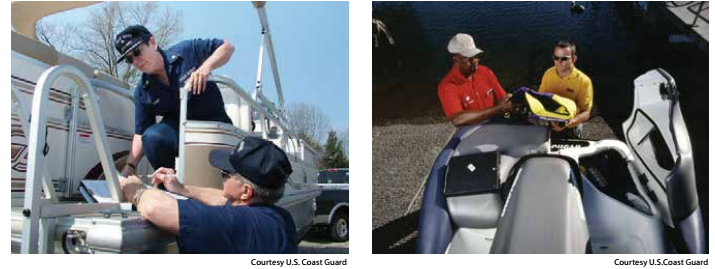As boating season begins, responsible boaters seek out a free vessel safety check from state and local marine law enforcement officers. Up to 25 percent fail across the country, which means without correction, those boat owners are putting themselves and others at risk.
The number one reason for failure is “up-to-date flares,” reports Andrew Thurman, a veteran vessel safety check officer with the U.S. Coast Guard Auxiliary (USCGAux). “All flares, for craft requiring them, have an expiration date. It isn’t that boats owners are deliberately negligent,” says Thurman, “but flares are like spare tires. They are out of sight until you need them and then, with an under-inflated tire or expired flare, you’re in trouble when an emergency arises.”
U.S. Coast Guard regulations are very explicit in the type and number of life jackets to have onboard. Yet according to Anthony Carter, another USCGAux examiner, “An inadequate number of life jackets” also makes the failure list. “I don’t think it’s willful, but more like carelessness or inexperience in operating a boat,” he explains.
Other reasons a boat may fail a vessel safety check:
- Incorrect display of hull registration numbers.
- Missing ownership, insurance, and registration paperwork.
- Expired fire extinguishers.
- No backfire flame control for inboard gas-powered boats.
- Missing sound producing devices (e.g. a horn or bell).
- Navigation lights missing, not the proper type, and/or incorrectly displayed.
- Overall vessel condition not shipshape (e.g. dirty bilges with standing water).
- Fuel in bilge or fuel leak.
- Inadequate or blocked ventilation.
Complete list here: www.safetyseal.net/vsc_stats.asp
Article written by: By William C. Winslow


